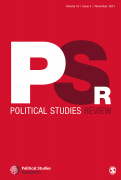For more than 30 years a debate has engulfed the theory and practice of ethnic conflict resolution between advocates of consociationalism and their opponents. For much of this time, the debate has primarily been an internal one within the broader school of power sharing. On the one side in this debate were those who subscribed to the idea that conflict settlements were most stable and durable if they rested on relatively rigid institutional structures as originally described by Arend Lijphart in 1977: grand coalition of political parties representing all major segments in a divided society; proportionality of legislative and executive representation and more generally in public service employment and the allocation of public funding; minority veto rights on all essential decisions; and segmental autonomy. Their opponents, chiefly among them Donald Horowitz, held that such arrangements were morally unacceptable and practically prone to collapse, and instead suggested mainly electoral mechanisms to induce moderation and conflict reduction, primarily the use of the Alternative Vote, a majoritarian preferential electoral system. The disagreements between consociationalists and integrationists have not subsided over the years, but rarely in this debate has any one of its participants questioned the value of power sharing as a mechanism to resolve conflict in divided societies. Three volumes considered in this review article speak to this debate as much as they aim to move beyond it, albeit in rather different directions:
- J. McGarry and B. O’Leary, The Northern Ireland Conflict: Consociational Engagements (Oxford University Press, 2004)
- P. G. Roeder and D. Rothchild (eds) Sustainable Peace: Power and Democracy after Civil Wars (Cornell University Press, 2005)
- B. O’Leary, J. McGarry, and K. Salih (eds) The Future of Kurdistan in Iraq (University of Pennsylvania Press, 2005)

